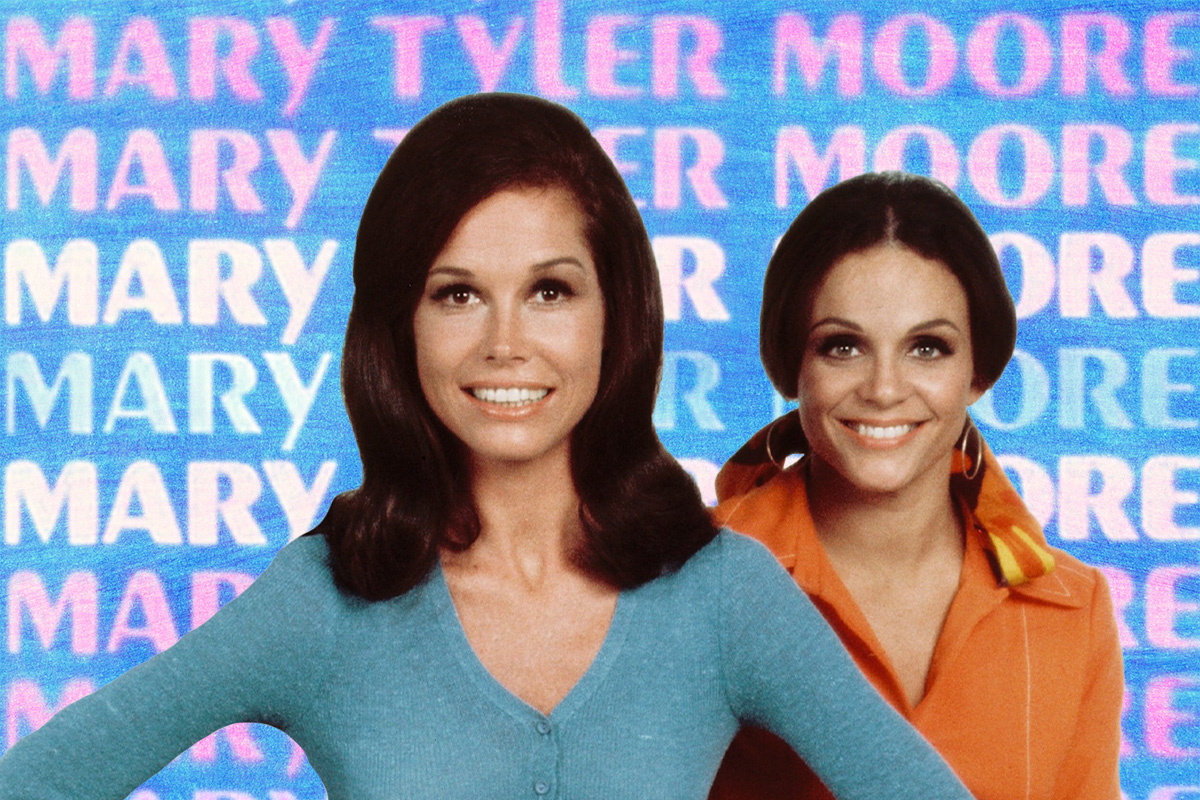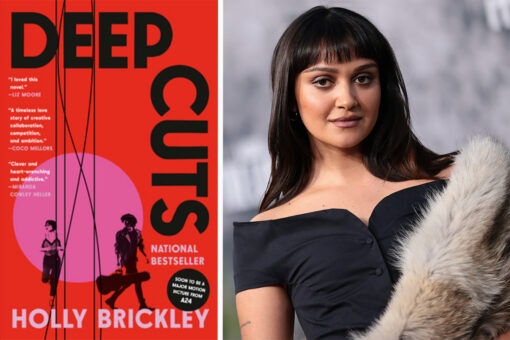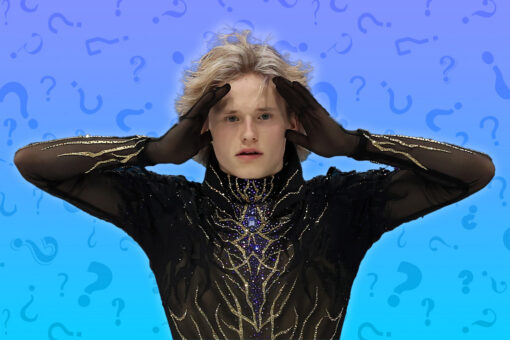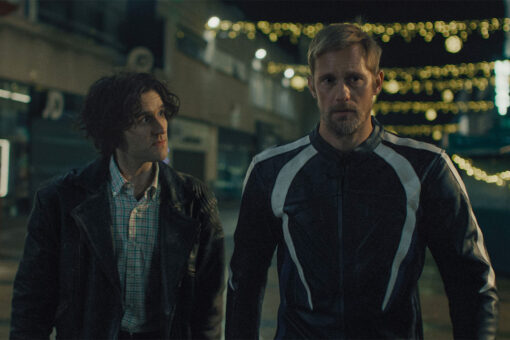“The Mary Tyler Moore Show” dominated the television landscape of the early ‘70s, with none other than Mary Tyler Moore herself at the center of it all. The perky, quippy protagonist attracted praise for her role in second-wave feminism, given her portrayal as an unapologetic single woman, neither divorced nor in need of a man. For my Jewish mother, the show exemplified her ideal ‘70s style and independence, and neither of us are strangers to the reruns.
In this already unique and trail-blazing show, the best friend of Mary Tyler Moore’s character was Rhoda, a spunky and charismatic Jewish woman. But, even in Rhoda’s subsequent spinoff show, “Rhoda” (1974-1978), her Judaism is seldom discussed. That said, it notably makes an appearance in one episode of “The Mary Tyler Moore Show” called “Some of My Best Friends Are Rhoda.”
The episode, which came out in 1972 and celebrated its 50th anniversary in February, still resonates with Jewish and non-Jewish audiences alike for tackling female friendships, coded biases and prejudiced in-crowds — and it directly discusses Rhoda’s Judaism. Here’s a rundown of the plot:
Mary gets into a car accident with Joanne, a pretty blonde who seems profusely apologetic about hitting her car. Being the nice girl-next-door, Mary invites Joanne in and eventually befriends her. The two participate in a range of activities together: lunch at work, going to the symphony and, most notably, tennis at an exclusive club that Joanne belongs to. Rhoda begins to feel left out of their friendship; she’s excluded from these activities and feels out of place among the polite, gentile girls. Mary’s neighbor, Phyllis, encourages Mary’s transition from a Jewish best friend to a more WASP-y alternative. Ultimately, Mary and Joanne’s friendship ends when Joanne’s real reasons for excluding Rhoda are exposed: She’s antisemitic. But Jewishness (or, more accurately, anti-Jewishness) is only discussed at the very end of the episode — and Rhoda is not even in the scene. In the last few minutes of the episode, Mary sticks up for Rhoda and is finally paid for the damages to her car.
“Some of My Best Friends Are Rhoda” has been praised for its stance against bigotry in a ‘70s political atmosphere. But I think its portrayal of Judaism becomes more complicated when examined through a modern lens, perhaps not standing the test of time.
The episode is absolutely loaded with coded language and imagery. Microaggressions are scattered throughout the episode, and they feel authentic to the antisemitism that Jews regularly experience. The episode uses cultural knowledge to draw a line between Jew and non-Jew, rather than call Joanne’s ideology what it is: antisemitism. For example, Joanne is very committed to practicing tennis at her exclusive club; she bonds with Mary over their shared sorority experience, and she and Mary wear crisp, white tennis outfits throughout the episode. This all starkly contrasts Rhoda’s Jew-coding, which includes un-sorority-like behavior, drastically different aesthetics (like wild, curly hair and baggy clothes) and prohibition from the tennis club.
Mixed in with this imagery are blatant antisemitic remarks. Phyllis, for one, encourages Mary to be friends with people more “like Joanne,” instead of Rhoda. Later on, Joanne suggests a four-person tennis game to Mary, but wants to bring Phyllis instead of Rhoda. She insists that Rhoda “couldn’t keep up” with them. This is barely code for “she simply wouldn’t fit in.” Other comments like “does she have the right clothes to wear?” suggest that she might feel “out of place” among those with the “right clothes.” Obviously, a Jew wouldn’t know what to do with herself among white, Christian society.
So, here’s how it ends: Joanne invites Mary and Phyllis to play at her tennis club. Mary doesn’t understand why Rhoda is excluded from the plan until Joanne explains that some people at the club “aren’t as liberal” as she or Mary are. Then, for the first time in the episode, Rhoda’s Judaism is explicitly discussed. Mary asks, “You mean because she’s Jewish?” Joanne insists that it’s not herself who is antisemitic, but that it’s just a rule of the tennis club and there is nothing to be done about it.
Then, Mary does something interesting. She pretends to be Jewish herself. Joanne is shocked and starts to stutter about how Mary doesn’t look or act Jewish. Finally, Mary admits that she isn’t Jewish, but that Joanne’s perception of her had changed when she thought that she was a Jew. Mary tells Joanne to go play tennis without her and, after an awkward goodbye, Joanne leaves.
The episode seems to be making a comment about the prevalence of antisemitism in ‘70s American society, as well as the hidden nature of white supremacy. For non-Jewish viewers, Joanne’s overarching bigotry was maybe not so obvious. It’s possible that the average white, American watcher even identified with her position. She was a proper, lovely girl who wanted to be friends with America’s girl-next-door. What’s so wrong with that?
When Joanne is outed as an antisemite, the show seems to say, “Is this you?” If the viewer did relate to her sorority-going, tennis-playing, Jew-excluding lifestyle, perhaps there would be a little personal reflection. However, this structure begs the question: If viewers were expected to decode and reflect on Joanne’s behavior, why wasn’t Mary?
Of course, Mary does stand up for Rhoda at the very end. The episode seems to tell viewers to stand up against bigotry (which should be very obvious, of course) and that antisemitism is bad. And that’s all well and good. But all in all, Mary doesn’t do a lot of critical thinking about Joanne’s ideologies. Fifty years later, the surprise ending made me ask: Did Mary do enough?
I am skeptical of Mary’s intervention with Joanne, firstly, because Rhoda is absent. In the only blatant conversation about antisemitism, the single Jewish character is missing. It’s unclear why the writers made the choice to cut out a Jewish perspective, but the effect is obvious: Mary becomes the savior for her Jewish friend, sticking up for Rhoda because Rhoda isn’t given the agency to do so herself. As a Jewish woman myself, it left a bit of a bad taste in my mouth. Perhaps it wouldn’t have appealed to a 1970s audience to see the loud, Jewish girl stick up for herself. Perhaps the opinion of the WASP-y girl next door was more palatable. Either way, Mary and her pretend Judaism become stand-ins for the real Jewish girl, who probably should have been part of the conversation.
But I also find myself asking: Is it really Rhoda’s responsibility to confront Joanne’s biases? Frankly, I’m not sure that forcing Rhoda into that conversation, where she might feel targeted and responsible for the divide created by Joanne, would have stood the test of time either — despite the ways in which a gentile audience could have benefitted from a Jewish perspective. It’s a delicate balance, this responsibility for antisemitism.
Unfortunately, in the 50 years since “All My Best Friends Are Rhoda,” Jews are still grappling with the very same issues. Jewish Americans are still targeted for their appearance, demeanor and culture. There are still spaces where Jews are not welcome and microaggressions can pop up in daily conversation. Antisemitism hasn’t gone anywhere. But at least in a media landscape where a Jewish presence is much more commonplace, Jewish Americans have far more opportunities to be a part of the conversation, if they so choose.
Late Take is a series on Hey Alma where we revisit Jewish pop culture of the past for no reason, other than the fact that we can’t stop thinking about it?? If you have a pitch for this column, please e-mail submissions@heyalma.com with “Late Take” in the subject line.




